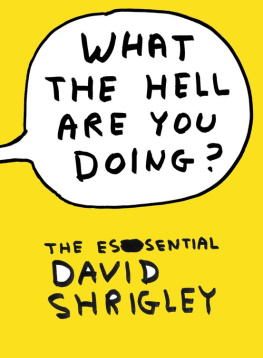Rotenberg David - Act
Here you can read online Rotenberg David - Act full text of the book (entire story) in english for free. Download pdf and epub, get meaning, cover and reviews about this ebook. year: 2021, publisher: ECW Press, genre: Detective and thriller. Description of the work, (preface) as well as reviews are available. Best literature library LitArk.com created for fans of good reading and offers a wide selection of genres:
Romance novel
Science fiction
Adventure
Detective
Science
History
Home and family
Prose
Art
Politics
Computer
Non-fiction
Religion
Business
Children
Humor
Choose a favorite category and find really read worthwhile books. Enjoy immersion in the world of imagination, feel the emotions of the characters or learn something new for yourself, make an fascinating discovery.
- Book:Act
- Author:
- Publisher:ECW Press
- Genre:
- Year:2021
- Rating:5 / 5
- Favourites:Add to favourites
- Your mark:
- 100
- 1
- 2
- 3
- 4
- 5
Act: summary, description and annotation
We offer to read an annotation, description, summary or preface (depends on what the author of the book "Act" wrote himself). If you haven't found the necessary information about the book — write in the comments, we will try to find it.
Act — read online for free the complete book (whole text) full work
Below is the text of the book, divided by pages. System saving the place of the last page read, allows you to conveniently read the book "Act" online for free, without having to search again every time where you left off. Put a bookmark, and you can go to the page where you finished reading at any time.
Font size:
Interval:
Bookmark:

The Modern Actors Handbook
David Rotenberg

I could not have even begun writing a book like this if it wasnt for the hundreds of talented actors who allowed me into their hearts and minds. It was, and remains, a real honor to be in the room with many of these talented artists. In the long run, I probably learned more from them than they ever learned from me.
Much of what follows are distillations of what they taught me.
Many have graciously allowed me to participate in their terrific successes. Many others still valiantly beat on, boats against the current, kept afloat by the love of the art of acting.
This book is a way of thanking those actors.
Then there are the fine teachers who work at my studio, The Professional Actors Lab Bruce, Marvin, Rae Ellen, Jeff, Laurel, Andrea, Phyllis and Noam.
As always, this book is for Susan, Joey and Beth but now I am happy to add Mary and Bean.
I have tried to keep things gender neutral in the book. But at times I slip and use gendered pronouns. In those instances, I am not inferring that one gender is preferable.
Stories can reveal the truth even if they are not truthful.
Graffiti on the canal street subway wall, circa 1976
I have taught professional actors for over thirty years. I began teaching between directing gigs in regional theaters when I was trying to stop smoking, hence no more work in bars. Yes, they allowed smoking in bars back then. I taught in my Manhattan apartment three nights a week my wife was very patient. In my second year of teaching I was contacted by a young man from Yonkers. He asked if I would set up a class for him and three of his friends. I asked about his background. He was not strictly an amateur, but he was clearly not traveling on a traditional professional trajectory. What he clearly was, was hungry. So I agreed.
On that first night he showed up with his three friends, one of whom was a dark-eyed young woman whose anger was so close to the surface that her face was in almost constant motion. That initial class we talked through some basic concepts, did a bit of improvisation and broke down a simple scene. Because the young woman decided that she wanted to just watch I suggested the three men prepare something from David Mamets American Buffalo for next week.
As they left, they put the money for class on the coffee table. It was obvious to me that the money they gave me was their food money. It was a moment that I have never forgotten.
I watched them from my brownstone window as they trudged through the snow and grime toward the Lexington Avenue subway.
When I picked up the money theyd left for me I immediately thought of the responsibility it imposed on me, and, to be frank, it frightened me.
It was the beginning of my thinking that it was no longer good enough to deliver hashed-over versions of the old acting tropes. Their food money obliged me to relook at what it was that I was teaching and had been taught, and upon closer examination and research I was shocked at how little serious reassessing had been done in the field. How few changes had been made to the classic acting texts, despite the clear fact that an actors world had changed drastically. More on that later.
The following week my Yonkers actors announced that they were ready to show me American Buffalo. I said sure, assuming that they had put a few pages of the play on its feet. They started into the play from the top. They did the whole play, cover to cover, without a break. What they did manage to break in the course of their performance was the mirror over the mantlepiece, a lamp and a windowpane. When they were finished, they turned to me as if to ask, So, what do you think, Coach?
What I thought was that hunger was an essential part of being a professional actor and that these young actors deserved more than the old acting dogma Id been taught.
One of these four aggressive young actors eventually barged his way into the profession. The other two men gave up the fight after a few years. The young woman well, its been my experience that anger can be a terribly destructive emotion when it is not understood.
That was one of the few times in my life that I taught beginners. I still dont teach beginners, and this book is not intended for beginning actors, although if they have enough hunger, theyll be able to find their own way of using the ideas and methods in these pages.
Like most good ideas, the concepts in this book are easy to learn but may take a lifetime to master. Because nothing of any value can be put on a 3 by 5 index card except the thought that Nothing of any value can be put on a 3 by 5 index card.
Acting teaching can be roughly broken down into those explorations that are about finding notes on an actors emotional piano keyboard and those explorations that are about how to play those notes. This book, and my work for the past thirty plus years, is primarily about the latter: how to play the notes you have found; how to understand what your notes mean; which of your notes are no longer any good; which have been false from the beginning; which notes can replace bad notes; which notes are available to you but you dont know about either because they are in a blind spot or are yet to be discovered; and, most importantly, how to play the notes you have in a fashion that, as Shakespeare says, will discourse most eloquent music (Hamlet, act 3, sc. 2).
I have often envied piano teachers at least their students can see the notes they need to play. As an acting teacher you must suss out the notes in an actor and then, as Hamlet says to Rosencrantz and Guildenstern, know my stops... pluck out the heart of my mystery... sound me from my lowest note to the top of my compass (act 3, sc. 2). In fact, that is exactly what an actor does the actor knows their stops and plays them in such a way that they produce most eloquent music that shares the heart of [their] mystery with the viewing public.
The actors territory is the human heart. It is an uncharted land sometimes defended by terrifying dragons, but it also contains great glories, music and deep human truths. To the hungry actor it is the only land worthy of investigation.
This book, ACT, attempts to give the actor a compass and a few points of entry into that divine territory. It is a journey that, for an artist, lasts a lifetime.
This book is full of techniques. I dont expect every actor to use every one of them for preparation or performance. Technique, all technique, is there for an artist when the way forward seems terribly confused; when you cant get past the exploration stage; when the voice in your head reading you your lines is all you can come up with; when, although others are pleased with your work, as the star of the series you are bored, bored, bored with it; when you find yourself coming up with the same product over and over again; when others always seem to be getting the role you want; when you finally at long last commit yourself to making your work compelling.
However, if you are not lost, and instead are functioning on all cylinders, feeling tall, feeling beautiful, feeling loved (you pick the one that gets you going), then no technique of any sort should be used. Just breathe down, pull out those back ribs and remember it is an honor to be paid to do the thing you love.
Font size:
Interval:
Bookmark:
Similar books «Act»
Look at similar books to Act. We have selected literature similar in name and meaning in the hope of providing readers with more options to find new, interesting, not yet read works.
Discussion, reviews of the book Act and just readers' own opinions. Leave your comments, write what you think about the work, its meaning or the main characters. Specify what exactly you liked and what you didn't like, and why you think so.

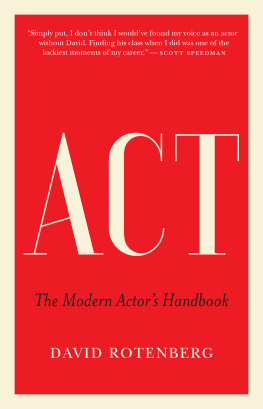
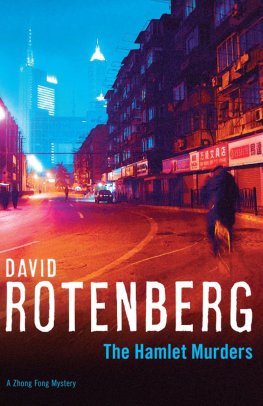
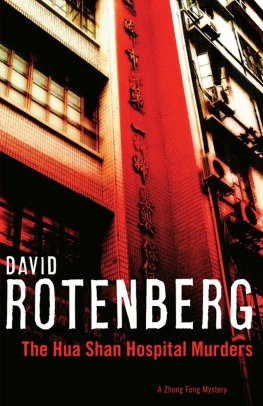
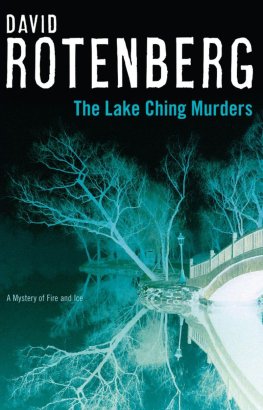
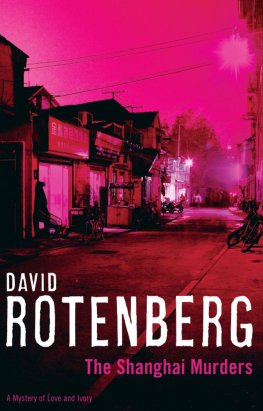
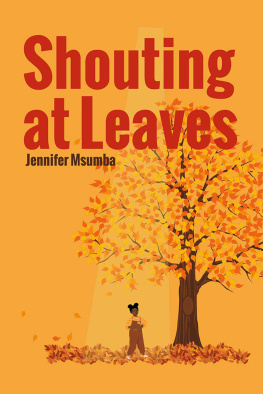

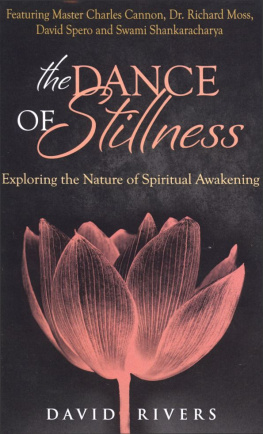
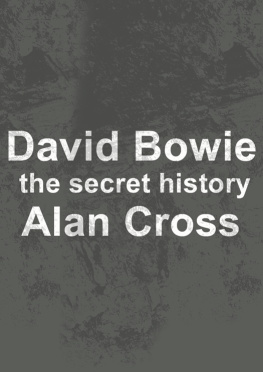

![David Lagercrantz [David Lagercrantz] - The Girl Who Lived Twice](/uploads/posts/book/140927/thumbs/david-lagercrantz-david-lagercrantz-the-girl.jpg)
